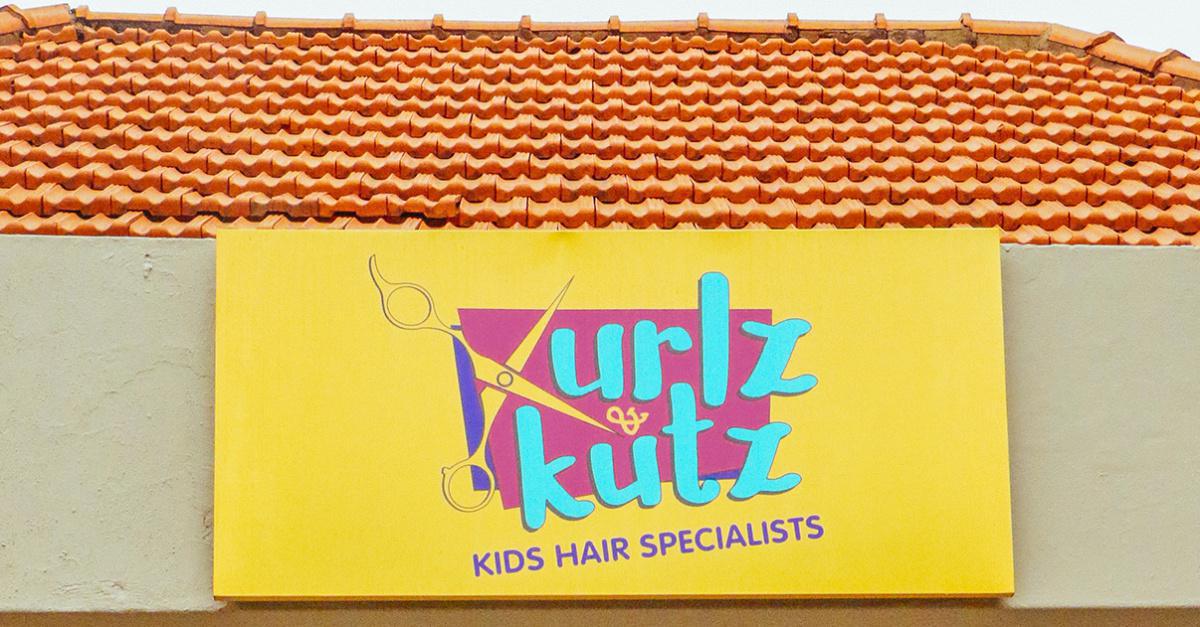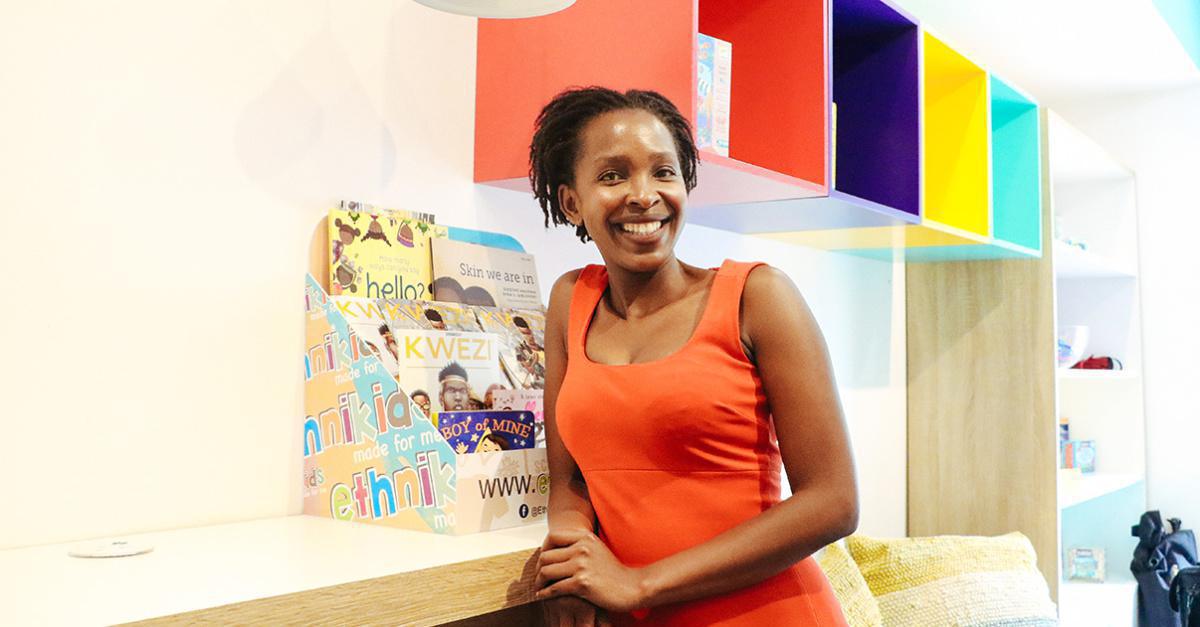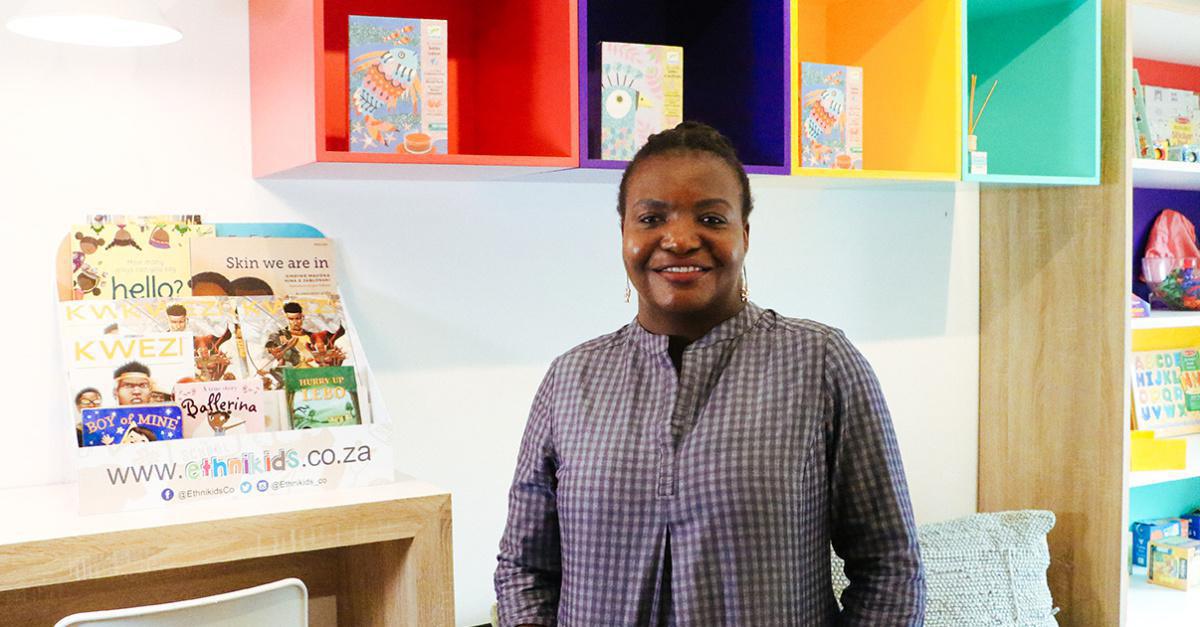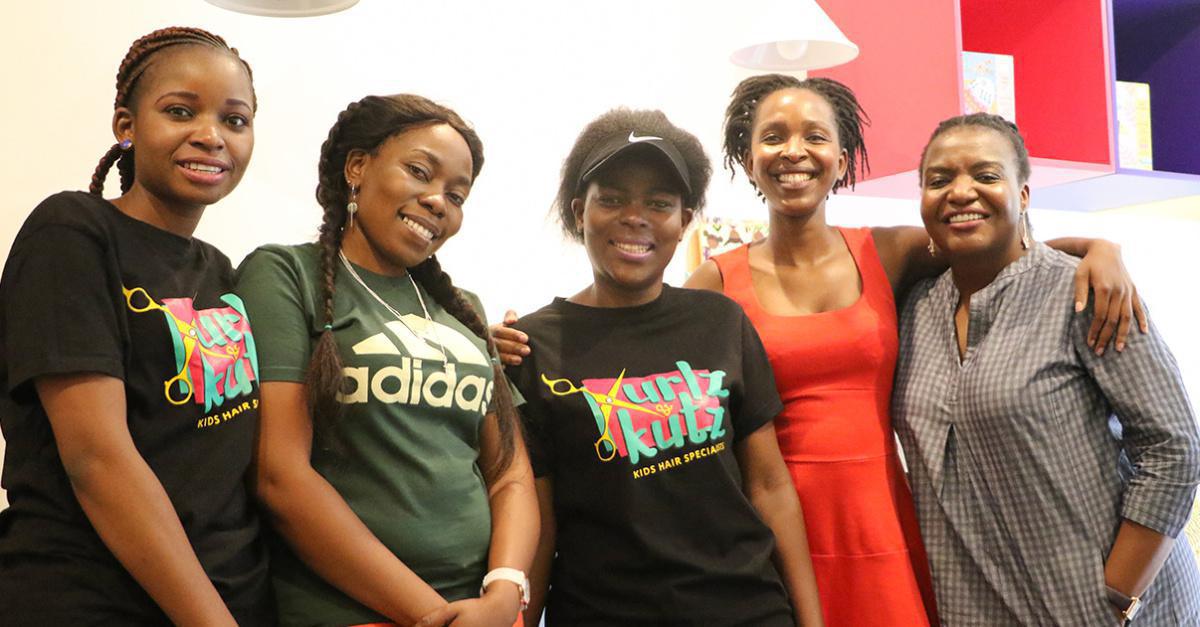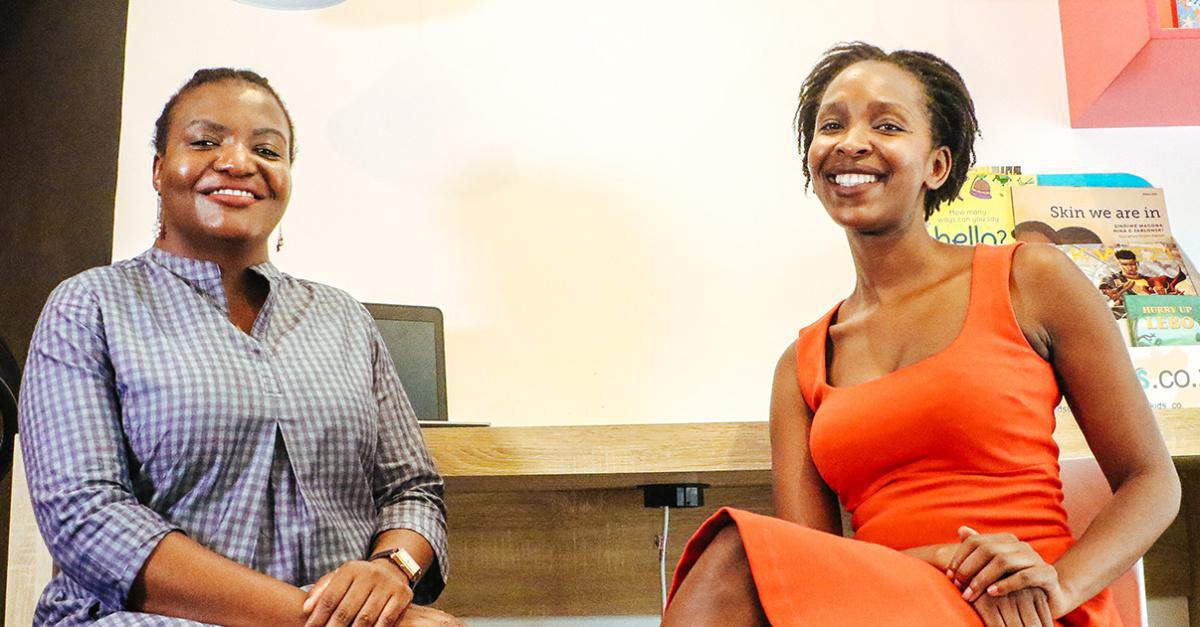Walking into Kurlz and Kutz children’s hair salon, as a child, must be a thrilling experience. But even as an adult, you can’t help but be uplifted by the bright red, purple, yellow and turquoise that greet you from across the room as you enter. With a fresh take on the approach to children’s hair, Kurlz and Kutz is more than a salon; it’s a safe space.
Co-owned by Tshilidzi Makhari, Hope Lukoto and Kelebogile Mashigo, the business opened its doors in 2017.
The origins
Hope and Tshilidzi, who are also sisters, started conceptualizing Kurlz and Kutz out of the not-so-pleasant experience of taking their daughters to the hair salon. “We have daughters that are the same age and we both struggled to find places that would treat our daughters well when it came to their grooming needs,” Tshilidzi explains. “We struggled with salons that were adult-inclined and they asked us quite often to relax our children’s hair or use product to soften it. We would get charged double the price because it would take so long to do their hair.”
The children loved looking good, but the process of getting to that end result was tedious, painful and overall unpleasant, even for Hope and Tshilidzi as parents. “One day we were just watching TV and we said, ‘Why don’t we just do this ourselves?’ ,” Tshilidzi says.
For Hope, a natural problem-solver, entrepreneurship was not a discovery, it was simply a logical means of solving the problems she had identified. “It didn’t even feel like we could possibly fail, it was more about how we were going to make it happen,” she says.
Kelebogile, who is a marketing specialist, became a partner when the two sisters felt they were out of their depth. “We knew what we wanted to do with the business but we weren’t sure how to get other people to know about it. She helped us to get it to where it is now, from logo design to putting colours together and the general aesthetics of the brand,” Tshilidzi says.
The positives
Although business is far from glamorous, when asked about the perkier side of things, Tshilidizi is appreciative of the very tangible growth of the hair salon.
“One of the positives is seeing something come into fruition, having started it from nothing and then seeing it turn into a meaningful business,” she says. “ I also love the impact that the business has on my children. They understand what it means to run a business. Everyone thinks being a business owner is glamorous, but our children have been with us from the start and they’ve seen what it takes. Those are invaluable lessons for them. If ever they grow up and want to start their own businesses, they’ll know what it takes and has the longevity to stick it through when it gets tough, because it most certainly will. It’s difficult to run a business, it’s not easy and it’s not glamorous.”
The marketing
With the valued help of Kelebogile, Kurlz and Kutz has made great strides in terms of the visibility of the brand, but it was far from a breeze. Tshilidzi recalls it being like “shooting in the dark”. “When you’re building a brand, you are basically going to try several things,” she explains. “And then you measure what is working and you do more of that. Incrementally, you keep changing what you’re doing. So we started off advertising in children’s publications and on Facebook. Those are platforms that really built our business in the initial stages.”
Today, the hair salon has garnered the attention of a healthy target market, and its marketing goals have shifted accordingly. Presently, the aim is to reach a wider audience.
The team dynamics
Small businesses do not truly have the luxury of an official HR function. Fortunately for Kurlz and Kutz, Hope is also an HR specialist by profession. “She’s also a qualified clinical psychologist, so she knows how to best interact with the staff,” Tshilidzi says. A big lesson for the founders has been to make their staff feel as though they are a part of the business and a part of the process. They maintain a culture that values the team’s opinions by involving them in decisions that directly affect them, and in doing so, give each employee autonomy over their own space and role. “That makes people feel valued and, as a result, they become easier to work with.”
Failure
There’s a lot that needs to happen in order for you to achieve. But you’re not going to hit all of the opportunities that come your way, and you need to be okay with that. You just have to try to hit as many as you can. You should also feel okay about taking a break and not quit. Just take a step back and rest and reflect. Those are the two things that help me deal with failure.
When do you know that you should give up? It’s tricky because sometimes you quit when you’re just about make it. But my philosophy is that the price of anything is the amount of life that you give up for it. That’s my guiding principle. What would make me quit is when something is taking too much life from me. Whatever i do, i have to give up part of my life for it, so it’s about knowing how much is too much.
Success
Success, although perceived differently by the founders, has the underlying theme of happiness and positive contributions to the lives of others. For Tshilidzi, that involves the happiness of herself and her family, and being positively impactful. For Hope, it involves the happiness of clients.
“For me success means being able to spend as much time with my family as i want to. If I am able to be in a position where I can spend more time with them, a position that allows me to free myself up for family, that’s success. Also, adding value and making a difference in people’s lives.
Vital Stats
Featured entrepreneurs: Hope Lukoto, Tshilidzi Makhari, Kelebogile Mashigo
Key players: As above
Ages: Hope Lukoto (42) – Tshilidzi Makhari (36) – Kelebogile Mashigo (37)
Company name: Kurlz & Kutz
Year founded: 2017
Turnover: R6.000 000
Start-up funding: R800 000


